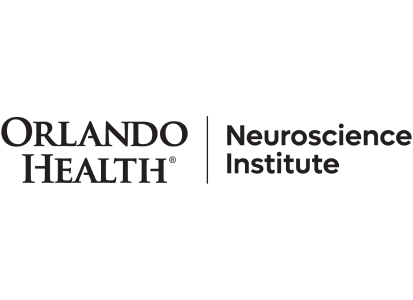Movement Disorders
If you have started to lose control of your body, you are undoubtedly looking for answers. Unexplained muscle spasms, difficulty walking, slurred speech and tremors could be related to a wide range of movement disorders.
At the Orlando Health Neuroscience Institute Movement Disorder clinic, our multidisciplinary team uses the latest technologies, therapies, diagnostic tools and medications to treat a wide range of movement disorders, including Parkinson’s disease, essential tremor, dystonia, ataxia and chorea.
No two movement disorders are the same. Our highly trained neurologists, neurosurgeons, nurses, neuropsychologists and rehabilitation specialists will work with you to develop a compassionate treatment plan designed around your unique needs.
Conditions We Treat
Ataxia is a degenerative disease of the nervous system. Many of its symptoms are similar to those exhibited by someone who is drunk. It results from damage to the cerebellum, the area of the brain that coordinates movement. The disease affects people of all ages. It can be debilitating and lead to an early death.
Symptoms include:
- Poor coordination
- Poor balance
- Difficulty swallowing
- Slurred speech
- Involuntary back-and-forth eye movement
- Difficulty with fine motor tasks (eating, brushing teeth, buttoning a shirt)
- Unsteady walking, with feet wide apart
Parkinson’s disease is a progressive disorder of the nervous system. Symptoms tend to start gradually, often with a slight tremor in one hand. As it progresses, it causes uncontrollable movements that worsen over time, eventually making it difficult to walk or talk. The disease is linked to the unexplained death of nerve cells in the area of the brain that controls movement.
Symptoms include:
- Tremors
- Slowed movement
- Rigid muscles
- Balance problems
- Speech changes
- Loss of automatic movements, including blinking or smiling
Atypical Parkinsonisms are progressive conditions similar to Parkinson’s disease, but often with additional symptoms. They typically do not respond as well to medication and may progress faster. These conditions (including dementia with Lewy bodies, progressive supranuclear palsy and multiple system atrophy) are linked to the accumulation of abnormal protein in the brain.
Symptoms vary, based on the underlying condition. They include:
- Visual hallucinations
- Mood changes, including depression and anxiety
- Apathy
- Slurred speech
- Difficulty controlling emotions
- Impaired balance
- Difficulty with eye movements, especially looking downward
- Rapid muscle jerks
- Dystonia (abnormal limb posture)
Chorea is a movement disorder that can be caused by numerous genetic conditions, infectious diseases, endocrine disorders, medications and even pregnancy. The condition is not life-threatening, though it could be a sign of a serious neurological disorder, such as Huntington’s disease. Treatment is based on the underlying cause, which could be temporary or something that will worsen over time.
Symptoms include:
- Fidgety or dance-like movements in the hands, feet and face
- Milkmaid’s grip (instead of a steady grip, the fingers repeatedly grip and release)
- Jack-in-the-box tongue (when you stick out your tongue, it may slide in and out of your mouth)
- Slurred speech
Dystonia causes your muscles to contract involuntarily, resulting in repetitive or twisting movements. The condition can affect your entire body or be limited to a specific part or parts. Muscle spasms can range from mild to severe and can be debilitating. There is no cure, though medication and therapy can improve your symptoms.
Symptoms include:
- Muscle spasms related to a specific action (writing or playing an instrument)
- Difficulty speaking above a whisper
- Slurred speech
- Difficulty chewing or swallowing
- Rapid, uncontrollable blinking
- Involuntary pulling of the neck
Essential tremor is a nervous system disorder that causes involuntary shaking, usually in the hands. The trembling occurs most often when you are doing simple tasks, such as eating with a fork or buttoning a shirt. The condition is usually not dangerous. It can occur at any age, though it is more common at 40 and beyond.
Symptoms include:
- Tremors begin gradually, often on one side of the body
- Condition worsens with movement
- Head nodding or shaking
- Tremors are worse when stressed or fatigued
Motor tics are movements caused by muscle contractions, often in the face, head, neck or shoulders while vocal tics are sounds. In both cases, they are often repetitive and sudden. There can be a premonitory urge prior to the tics followed by relief after expression of the tics. Combinations of motor and vocal tics may be diagnosed as Tourette’s syndrome. When tics start in childhood, they often improve as you grow older. If they start in your teens or in adulthood, they might be a lifelong condition.
Symptoms include:
- Quick eye blinks
- Head jerks
- Shoulder shrugs
- Touching people or things
- Obscene gesturing
- Grunting
- Hissing
- Snorting
- Barking
Tardive dyskinesia is an uncommon condition in which you have involuntary facial movements or other parts of the body. It is an unfortunate side effect of certain medications, often for mental health disorders. It can take years from the start of the medication to the onset of symptoms, which often lessen or go away if the medication is halted.
Symptoms include:
- Rapid blinking
- Grimacing
- Lip smacking
- Chewing motions
- Limb movements
Evaluation & Diagnosis
Our highly specialized team are experts in movement disorders, and we use the latest technologies to provide you with an accurate diagnosis. We will start with a comprehensive look at your medical history and perform a physical and neurological evaluation. Your motor skills and reflexes will be measured, and you may be asked to walk a short distance.
This may be followed by a wide range of tests that will examine your blood, cerebrospinal fluid, muscle tissue and the electrical activity in your nerves, muscles, and brain.
Imaging tests, alone, cannot generally diagnose movement disorders. But they can be valuable in verifying or clarifying other clinical findings. These include magnetic resonance imaging (MRI), positron emission tomography (PET), dopamine transporter scan (DaT) and computed tomography (CT).
Treatments
If you have been diagnosed with a movement disorder, we understand the turmoil and challenges this can present. At the Orlando Health Neuroscience Institute, our experts are ready to provide compassionate care tailored to your unique needs. We offer the latest options available for treatment and rehabilitation.
Among the treatment options:
Deep brain stimulation involves implanting electrodes in specific parts of the brain. These electrodes generate impulses that help regulate abnormal impulses or affect certain cells or chemicals in the brain. This is commonly used to treat Parkinson’s disease, essential tremor, dystonia and other movement disorders. The stimulation is controlled by a pacemaker-like device which is implanted under the skin in the upper chest.
Botox injections can be used to relax contracted muscles found in conditions such as dystonia, blepharospasm, hemifacial spasm, writer’s cramp and spasticity.
Advanced medicine therapy focuses on finding the right medication, or combination of medications, for your symptoms or condition.
Physical, occupational, behavioral and speech therapy works with you to minimize the impact of your symptoms and to maximize your quality of life.
Clinical trials offer our team of specialists the opportunity to take part in evaluating the latest treatments, medications, diagnostic tools and therapies. They also provide a chance for our patients to gain early access to treatments.
-
Request an Appointment
-
Meet the Team
Navigate Your Health


Find a Neuroscience Specialist
Find a Neuroscience Specialist
Meet our doctors who specialize in the full range of neuroscience care. Our team of experts has experience in a variety of specialty areas. Together, we provide comprehensive evaluation, diagnosis and treatment options.
Find a Doctor

Virtual Visit
Virtual Visit
Need to talk with a doctor, but don’t want to leave your home? Try our virtual visit (telehealth) option to connect with a physician from your phone, tablet or computer.
Learn More

